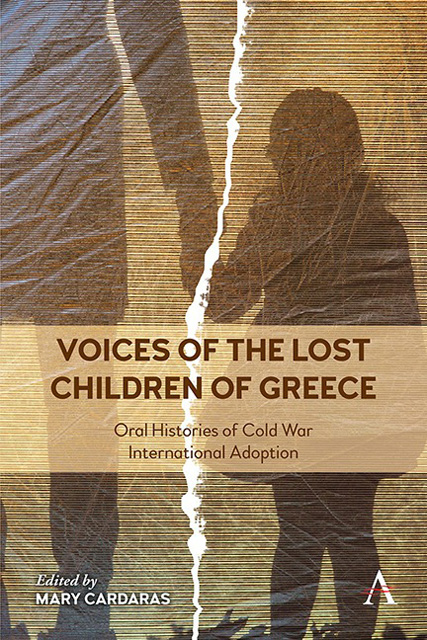Book contents
- Frontmatter
- Dedication
- Dedication
- Contents
- Foreword
- Introduction
- 1 Adoption’s Unfinished Business
- 2 Full Circles and Beyond
- 3 What’s in a Name?
- 4 The Second Beginning
- 5 Questions of the Heart
- 6 The Secret
- 7 A Coffin Full of Secrets
- 8 The Final Goodbye
- 9 Unsettled Soul
- 10 That’s All I Know So Far
- 11 Given, Taken, Never Received
- 12 An Adventure in Identity
- 13 Broken Lines: A Story to Tell
- 14 An Unexpected Journey
- 15 Time Run Out
- 16 Today and Afterward
- Acknowledgments
- About the Editor
- Resource List
15 - Time Run Out
Published online by Cambridge University Press: 17 October 2023
- Frontmatter
- Dedication
- Dedication
- Contents
- Foreword
- Introduction
- 1 Adoption’s Unfinished Business
- 2 Full Circles and Beyond
- 3 What’s in a Name?
- 4 The Second Beginning
- 5 Questions of the Heart
- 6 The Secret
- 7 A Coffin Full of Secrets
- 8 The Final Goodbye
- 9 Unsettled Soul
- 10 That’s All I Know So Far
- 11 Given, Taken, Never Received
- 12 An Adventure in Identity
- 13 Broken Lines: A Story to Tell
- 14 An Unexpected Journey
- 15 Time Run Out
- 16 Today and Afterward
- Acknowledgments
- About the Editor
- Resource List
Summary
It was another woman who gave me life. Though physically absent, her constant presence came by way of persistent reminders that I was of someone else, from someplace else, an import, brought to the United States to a new, another Greek family.
I was labeled an orphan. An orphan. That was me all my life. But I wasn’t an orphan at all. I had a mother, who knew me, touched me, held me. And I had a father, too, who might be out there somewhere. But I wasn’t an orphan. I was left. Abandoned. And then signed away to other people. Wasn’t I lucky? She loved me so much that she chose for me a better life.
She didn’t want to leave me. She had to leave me. Is that even true?
She.
Whoever she was, she was with me, if only for a few precious, painful days, weeks, months. She was with me. She still is.
With me.
My story achieved folk legend status in Gary, Indiana, where I grew up. Not because it was so important, or that I was so important, but because it had been told and repeated over and over again by someone, anyone, who knew the story or was in our lives when I arrived from Greece. I was “special” because I was adopted and I was the adopted child throughout my life. “A souvenir baby,” one local newspaper article said about me.
I was left in an orphanage in Athens. Dozens and dozens of babies. Overcrowded. Dirty. Two, sometimes three to a crib, they said. I was the only one awake when a Greek couple had come looking for a baby for their American-born daughter and son-in-law, who could not afford the trip themselves.
They were looking for a baby girl. Up and down the cramped aisles of cribs with steel bars, they gingerly stepped, staring at tiny sleeping faces. But every time they passed where I could catch of glimpse of them, I raised myself up on my two, small, stiffened arms and followed them as if to say “what about me?”
- Type
- Chapter
- Information
- Voices of the Lost Children of GreeceOral Histories of Post-War International Adoption, pp. 163 - 178Publisher: Anthem PressPrint publication year: 2023



